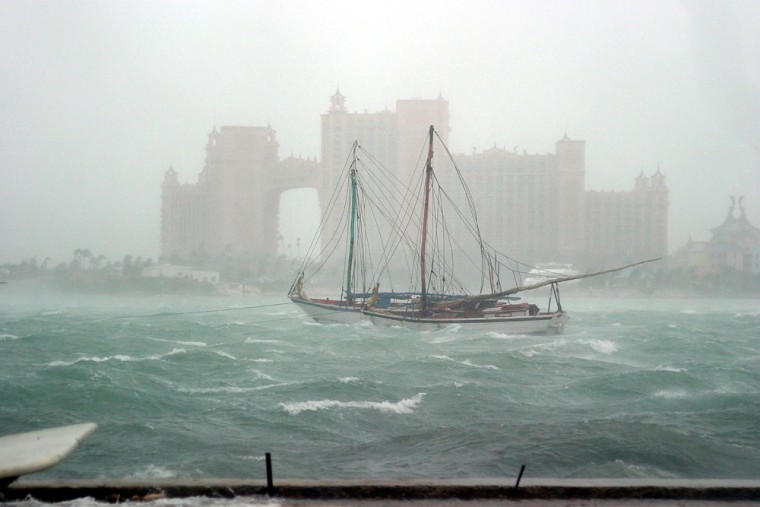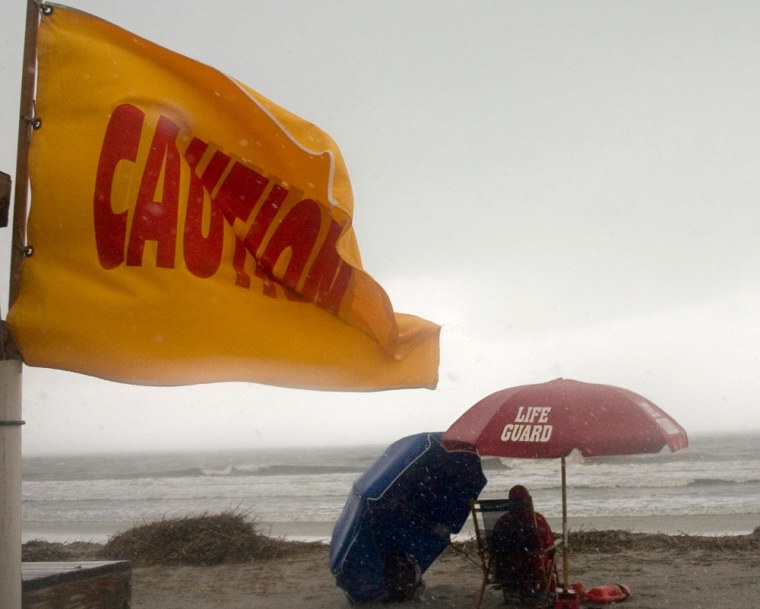Last year, luxury travel consultant Terry McCabe planned a late-August getaway to Naples, Fla., for a Manhattan attorney in his early 30s, his wife and their newborn baby. Just days before they were to depart, however, weather reports predicted that a hurricane was headed for the Florida coast.
"They had purposely avoided the Caribbean … because it was hurricane season," says McCabe, part of New York City-based Altour International. "But a hurricane was in the forecast even in Florida."
Though she rebooked the family on a trip to Georgia's Sea Island and they were able to get a refund on their hotel and air tickets, McCabe's story shows that travelers heading to the Caribbean, Mexico or Florida during the heart of hurricane season can risk being drowned out of their vacation.
That's what happened to more than 30,000 vacationers to the Cancún area in October 2005. They got more than the beach vacation they bargained for when Hurricane Wilma hit. Cancún International Airport was shut for nine days, stranding travelers. Hotels were damaged and lost electricity.
"Hurricanes affect coastal areas, and their season runs from July through October, with August and September being the peak months," says Dennis Feltgen, a meteorologist with the National Hurricane Center. "That means areas like the Caribbean, Bahamas and Florida are vulnerable to them."
What's brewing
While each season has an average of six hurricanes, 2007 is shaping up to be an especially active year, with seven to 10 storms expected.
Why? Stanley Goldenberg, a meteorologist with the Hurricane Research Division of the National Oceanic and Atmospheric Administration in Silver Spring, Md., says that El Niño, a warming pattern that suppresses storms, will not occur this year.
"Not only will we not see El Niño," he says, "we're going to see La Niña — a cooling pattern conducive to hurricanes."
Despite the bleak outlook, experts say there's no reason you should skip a trip to a hurricane-prone area if you observe a few basic rules.
Simple steps to a safer stay
First and foremost, says Goldenberg, keep abreast of weather forecasts.
Second, steer clear of mountainous or hilly destinations, where rain can precipitate landslides and flood valley floors.
The Dominican Republic, for example, has four mountain ranges, including the Central Cordillera, which means this island is particularly vulnerable during an active hurricane season and can get major flooding and mudslides. In 2004, another active hurricane year, Hurricane Jeanne caused "horrific flooding" here, Feltgen says.

The 700 islands that make up the Bahamas don't have hilly topography but are in the heart of the hurricane belt. Goldenberg says that in an active hurricane year, the Bahamas usually get at least one scare, if not a hit. Hurricane Frances in early September 2004 was the last one to come through the archipelago, but even then, the islands recovered quickly. Every major resort reopened within three weeks of the storm.
Two other rules of thumb: The smaller the region you want to visit, the less likely it will be hit. Bermuda, for instance, is just 33 square miles, so the chances of a storm ruining your summer vacation here are smaller than in larger areas like Florida or the Virgin Islands, which cover 183 square miles. Finally, head north: Storms weaken as they go north, so a destination like Hilton Head is almost always spared a hurricane's full force.
Hot-spot deals
Experts say there are two major advantages to traveling during the hurricane season: deep discounts and fewer crowds.
"From late June through October, travelers going to the Caribbean, parts of Mexico and Florida will find incredible deals on luxury hotels," says Arabella Bowen, editorial director of ShermansTravel.com, a travel deal site. "Plus, you'll have empty beaches and be able to secure spa appointments and restaurant reservations easily, which isn't always the case during peak season."
The discounts can be anywhere between 40 to70 percent. For example, a deluxe ocean view at the Ritz-Carlton in Cancún is $259 a night in August. In mid-December, the rate for the same room jumps to $869. At the One & Ocean Club on Paradise Island in the Bahamas, a garden view room normally goes for $750. From early July to October, prices for the same room start at $490.
Bowen says hotels discount deeply during this time period because they want to entice vacationers to travel during hurricane season and, in part, because temperatures and humidity are higher than in other months.
Bargains aside, if you are planning to travel during hurricane season to a vulnerable area, make sure to buy travel insurance so you don't lose your money in case your trip gets canceled. In all likelihood, you won't be affected, and the steep price breaks at upscale hotels and lack of tourists will make your vacation that much sweeter.
